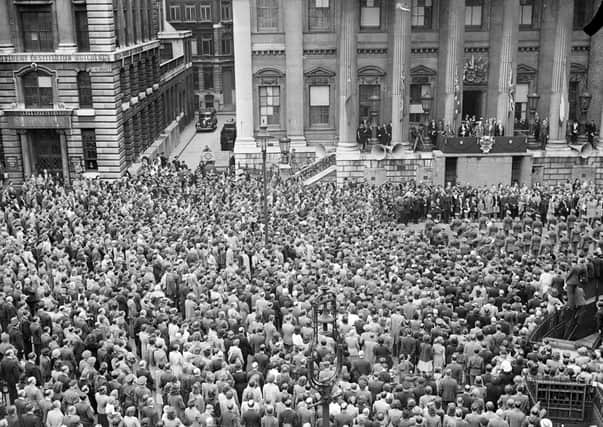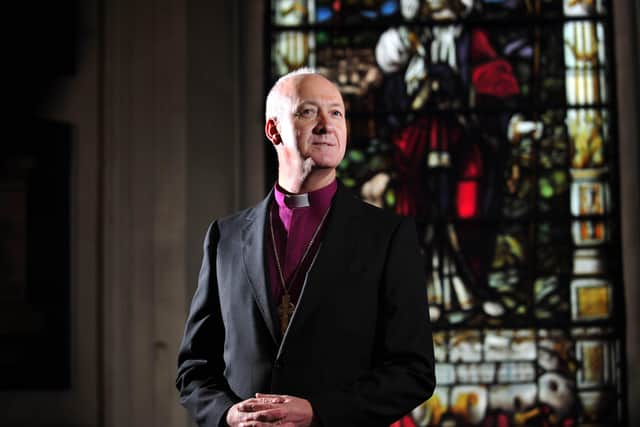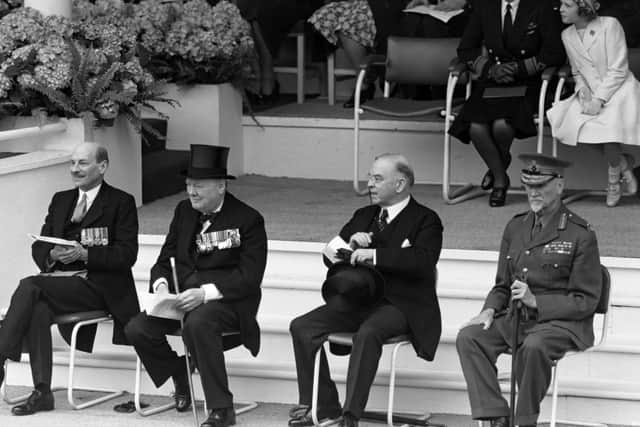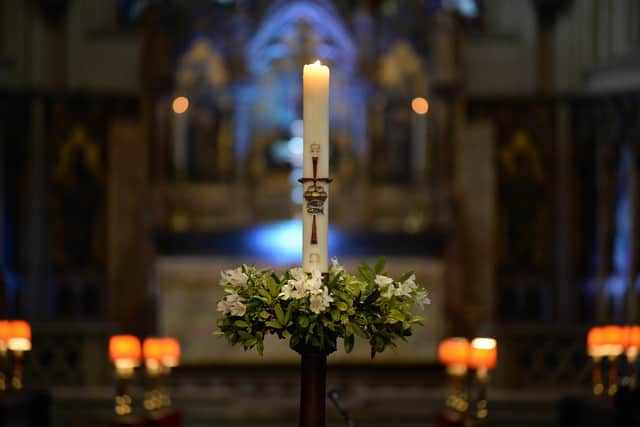VE Day reminds us that our peace must be protected – Bishop of Leeds


I had listened to the stories told by my parents and grandparents of air-raid shelters, bombed houses, destroyed families – especially from the Blitz on Liverpool in May 1941.
Yet, here I was, standing in the pulpit of a church – now restored – that the Allies had fire-bombed on the night of February 13-14, 1945. And I remembered William Blake’s reference to a “fearful symmetry”.
Advertisement
Hide AdAdvertisement
Hide AdThe Second World War cost an estimated 50 million deaths. The casualties who stayed alive in some way are incalculable.


I have had friends in Austria and Germany who were force-marched from their original home in (what became) Yugoslavia to near Paris and then back eastwards to the Danube, confronted by Soviet occupying forces. They were children. War was brutal.
Seventy-five years is not a long time really. The unconditional surrender of the Nazi regime on May 8, 1945, brought an end to the conflict in Europe – although the slaughter continued in the Far East until August. It was, as the REM song puts it, “the end of the world as we know it”.
A world exhausted by violence, fear and suffering breathed deeply … but then had to turn its collective face towards building a future.
Advertisement
Hide AdAdvertisement
Hide AdNot rebuilding, however. Nobody suggested that the world should return to some mythical golden age of the 1920s or 30s. Rather, they knew they had to take responsibility for building something new and untested.


So, while we rightly celebrate the courage and sacrifice of so many during those terrible years of Nazi tyranny and global conflict, we cannot romanticise it and simply stay with the echo of some past glory.
We have to look to the future and ask – if we learn anything from history and those who paid the price of victory and peace – what is required of us in building the world our children and grandchildren will inherit?
If you go to the Holocaust Museum, at Yad Vashem, in Jerusalem, you will eventually find your way to the memorial to the Warsaw Uprising.
Advertisement
Hide AdAdvertisement
Hide AdEither side of a door in a courtyard there are two sculpted reliefs: one depicts the uprising, led by a 19-year-old who refused to lie down and be slaughtered; the other shows Jews being meekly led like lambs, herded by faceless Nazi soldiers. In other words, people respond differently to threat and dehumanisation – and neither should be judged by those who never have to face the choice.


I asked an academic who took me there some years ago why the Nazi soldiers had not been give any facial features. He said that they could not be depicted as human.
So, I asked if that was actually the problem: if we dehumanise the evil-doers by making them faceless, do we also avoid the shocking agony that the immense and systematic cruelties of the Holocaust were perpetrated by people like me and you? He wouldn’t answer, but the question has never left me.
Although I was involved in a distant way in the Falklands War in 1982 (in a previous job in Cheltenham), I was never confronted by immediate brutality or threat. I never had to make the hard choices regarding violent resistance or submission.
Advertisement
Hide Ad